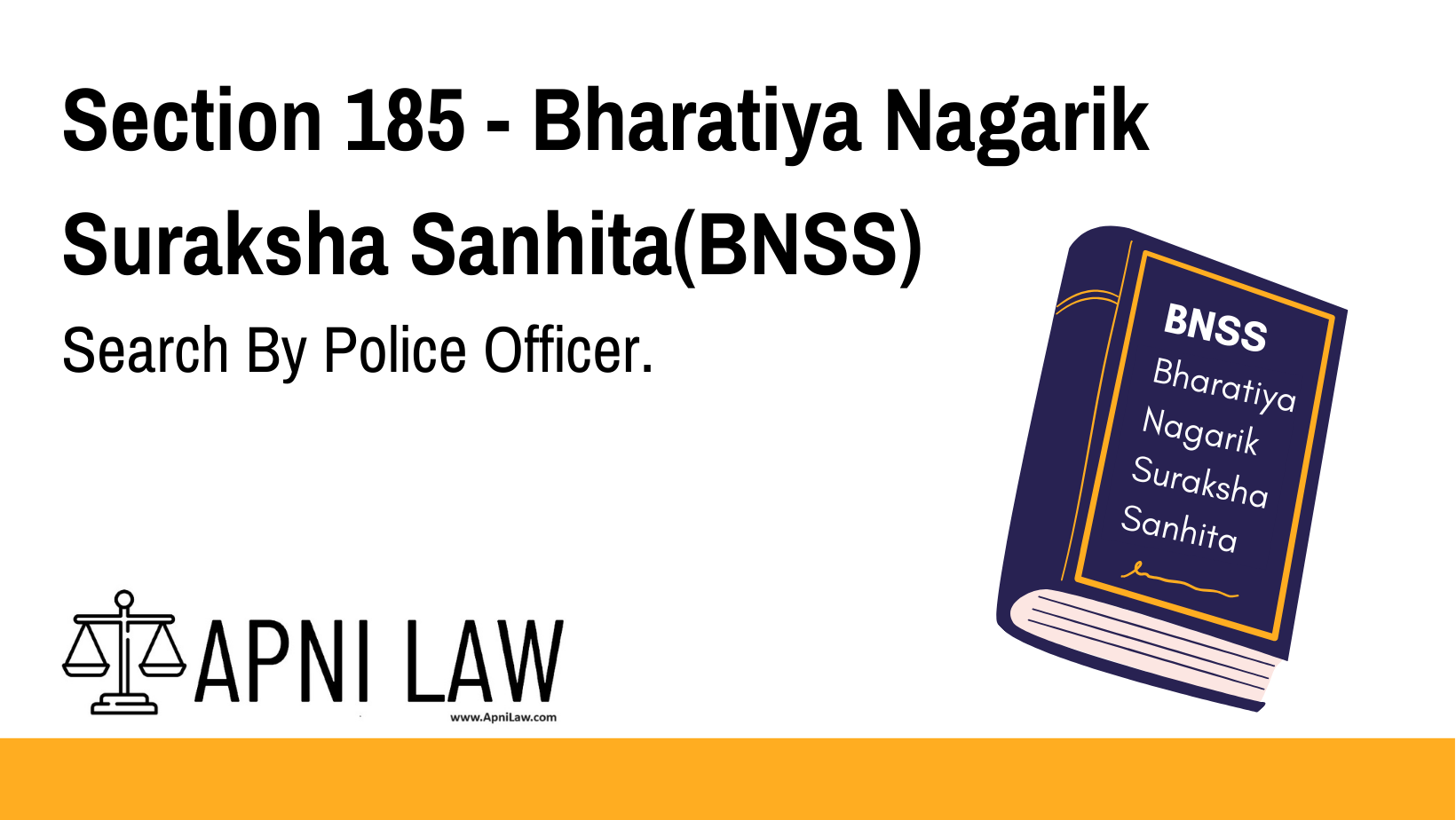Code:
(1) Whenever an officer in charge of a police station or a police officer making an
investigation has reasonable grounds for believing that anything necessary for the purposes
of an investigation into any offence which he is authorised to investigate may be found in
any place within the limits of the police station of which he is in charge, or to which he is
attached, and that such thing cannot in his opinion be otherwise obtained without undue
delay, such officer may, after recording in writing the grounds of his belief in the case-diary
and specifying in such writing, so far as possible, the thing for which search is to be made,
search, or cause search to be made, for such thing in any place within the limits of such
station.
(2) A police officer proceeding under sub-section (1), shall, if practicable, conduct the
search in person:
Provided that the search conducted under this section shall be recorded through
audio-video electronic means preferably by mobile phone.
(3) If he is unable to conduct the search in person, and there is no other person
competent to make the search present at the time, he may, after recording in writing his
reasons for so doing, require any officer subordinate to him to make the search, and he shall
deliver to such subordinate officer an order in writing, specifying the place to be searched,
and so far as possible, the thing for which search is to be made; and such subordinate
officer may thereupon search for such thing in such place.
(4) The provisions of this Sanhita as to search-warrants and the general provisions as
to searches contained in section 103 shall, so far as may be, apply to a search made under
this section.
(5) Copies of any record made under sub-section (1) or sub-section (3) shall forthwith,
but not later than forty-eight hours, be sent to the nearest Magistrate empowered to take
cognizance of the offence, and the owner or occupier of the place searched shall, on
application, be furnished, free of cost, with a copy of the same by the Magistrate.
Explanation
Section 185 BNSS empowers police officers to conduct searches without obtaining a warrant under certain conditions. This provision ensures that investigations are not delayed due to procedural constraints while maintaining oversight by requiring documentation and reporting to the Magistrate.
Key Provisions:
- Search Authority: A police officer may conduct a search if they have reasonable grounds to believe that an item required for an investigation is present in a location under their jurisdiction.
- Documentation Requirement: The officer must record in writing the reasons for the search and specify what is being searched for.
- Search Recording: The search must be recorded using audio-video means, preferably via mobile phone.
- Delegation of Search: If the officer in charge cannot personally conduct the search, they must delegate it to a subordinate officer in writing.
- Legal Safeguards: The provisions related to search-warrants and general procedures for searches in Section 103 shall apply.
- Reporting to Magistrate: A record of the search must be sent to the nearest Magistrate within 48 hours, and a free copy must be provided to the owner or occupier of the searched premises.
Illustration
Example 1: Immediate Search Without a Warrant
A police officer investigating a robbery case has reason to believe that stolen goods are hidden in a nearby warehouse. Since obtaining a warrant could cause undue delay, the officer records the reasons in writing and immediately conducts a search, ensuring that it is recorded using a mobile phone as required under Section 185.
Example 2: Delegated Search Authority
The officer in charge of a police station is informed about an illegal arms cache in an abandoned house but is unable to be present for the search. He delegates the task to a subordinate officer in writing, specifying the location and items to be seized. The subordinate officer conducts the search and submits a report to the Magistrate within 48 hours.
Common Questions and Answers
1. Can a police officer search a place without a warrant under Section 185?
- Answer: Yes, if the officer has reasonable grounds to believe that an item necessary for an investigation is located in a particular place and obtaining a warrant would cause undue delay, they can proceed with the search after recording the justification in writing.
2. Is video recording mandatory for searches under this section?
- Answer: Yes, wherever possible, the search must be recorded through audio-video means, preferably using a mobile phone, ensuring transparency.
3. What happens if the officer is unable to conduct the search personally?
- Answer: The officer must record the reason in writing and delegate the search to a subordinate officer by issuing a written order specifying the details of the search.
4. How soon must the search records be sent to a Magistrate?
- Answer: The search records must be submitted to the nearest Magistrate within 48 hours, ensuring judicial oversight.
5. Does the owner of the premises have the right to get a copy of the search record?
- Answer: Yes, the owner or occupier of the place searched is entitled to receive a free copy of the search record upon request from the Magistrate.
Conclusion
Section 185 BNSS provides police officers with the authority to conduct warrantless searches when necessary for investigations. However, it includes safeguards such as mandatory recording, written documentation, and reporting to a Magistrate to prevent misuse of power. This ensures a balance between effective law enforcement and protection of individual rights.









